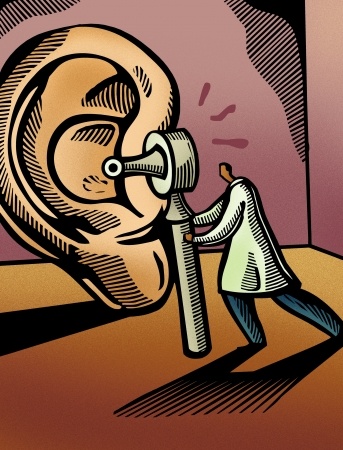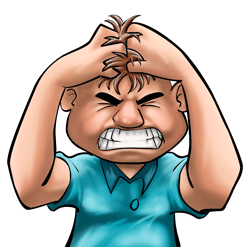
doctorofaudiology
16 Years Experience
Marlboro, NJ
Male, 40
I've been an audiologist for 16 years. I work with all types of patients, focusing on balance disorders, tinnitus, and hearing aids. As I have worked in an Ear, Nose, Throat setting much of my career, I am also exposed to much of the medical side of audiology. ASK ME ANYTHING about being an audiologist.
DISCLAIMER: If you feel that you have a hearing or balance issue, please be sure to see your local ENT or audiologist. This Q&A is not designed to treat or diagnose your problems.
Alas, in most cases, the answer is no. With the exception of a medically based tinnitus (sound in ears) that is structurally based, there is no cure for tinnitus. 90% of those who have tinnitus simply "just live with it". Those who cannot often will benefit from tinnitus therapy. Therapy may include the usage of a hearing aid, a device that masks tinnitus, change in diet, change in medications, accupuncture, etc. These are not guaranteeds to work. But again, they are TREATMENTS, not cures.
Not at this time, nor do we prescribe medications. But as the profession develops, you never know.
CAPD is not widely acknowledged....simply because people don't know what it is! Best of luck!
Perhaps the audiologist thought you just said a "cracking"....
The IT Guy
 What's the the stupidest IT question you've every gotten?
What's the the stupidest IT question you've every gotten?
Magician
 How do you feel about magicians on TV who reveal how tricks are done?
How do you feel about magicians on TV who reveal how tricks are done?
Border Patrol Agent
 Do Mexican authorities help on THEIR side of the border?
Do Mexican authorities help on THEIR side of the border?
Exposure to sound at 120 dB for over 30 seconds is technically considered dangerous if repeatedly listened to. The degree of damage varies...it depends on the length of your career...how long you have been doing this...etc. But yes, there is danger. It is my belief that all officers have annual audiological evaluations.
Yes...refer to the Americans with Disabilities act for more information.
Well, hearing aids send information to the ear. The ear then sends information to the brain. Whether you get hearing aids or not, the ear will age. You cannot stop this from happening if you get hearing aids. However, auditory processing can be adversely affected without hearing aids. If the ear and the brain are not in communcation over a period of time, auditory pathway fibers will wear down. We try to preserve that communication with hearing aids. So, in THAT sense, if you don't use it, you lose it.
-OR-
 Login with Facebook
Login with Facebook (max 20 characters - letters, numbers, and underscores only. Note that your username is private, and you have the option to choose an alias when asking questions or hosting a Q&A.)
(A valid e-mail address is required. Your e-mail will not be shared with anyone.)
(min 5 characters)
By checking this box, you acknowledge that you have read and agree to Jobstr.com’s Terms and Privacy Policy.
-OR-
 Register with Facebook
Register with Facebook(Don't worry: you'll be able to choose an alias when asking questions or hosting a Q&A.)